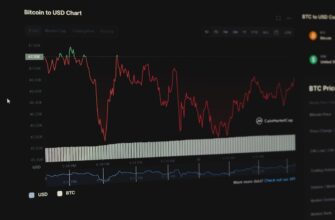## Understanding DeFi Taxes in Australia
Decentralized Finance (DeFi) has revolutionized how Australians earn yield through crypto staking, liquidity pools, and lending. But with innovation comes tax complexity. The Australian Taxation Office (ATO) treats cryptocurrency as property, meaning DeFi earnings are subject to income tax or capital gains tax (CGT). This guide breaks down everything you need to know about paying taxes on DeFi yield in Australia.
## How the ATO Taxes DeFi Activities
The ATO categorizes DeFi earnings based on activity type:
– **Staking Rewards**: Treated as ordinary income at fair market value when received.
– **Liquidity Pool Earnings**: Rewards (like LP tokens) are assessable income upon receipt; pool entry/exit may trigger CGT.
– **Lending Interest**: Yield from platforms like Aave is taxable as interest income.
– **Airdrops & Forks**: Taxable if received in exchange for services or as part of a business operation.
Key principle: Crypto-to-crypto transactions (e.g., swapping ETH for a governance token) are CGT events, with AUD values calculated at transaction time.
## When Tax Triggers Occur in DeFi
You incur tax obligations during these events:
1. **Receiving Rewards**: When staking yields or interest hit your wallet, it’s income tax time based on AUD value at receipt.
2. **Selling/Trading Crypto**: Disposing of earned tokens triggers CGT. Profit = Sale price minus cost base (including acquisition costs).
3. **Providing/Removing Liquidity**: Adding/withdrawing assets from pools may create CGT events if asset values change.
4. **Using Crypto for Goods/Services**: Spending DeFi earnings is a disposal subject to CGT.
## Record-Keeping: Your Tax Survival Toolkit
Maintain these records for 5 years:
– Wallet addresses and transaction IDs
– Dates/times of all transactions
– AUD value of crypto at transaction time (use reputable exchange data)
– Details of DeFi platforms used
– Calculations for cost bases and capital gains
– Receipts for hardware wallets or related expenses
Tip: Use crypto tax software (Koinly, CoinTracker) to automate tracking and AUD conversions.
## Reporting DeFi Taxes to the ATO
Include DeFi earnings in your annual tax return:
1. **Income Section**: Report staking rewards, interest, and airdrops as “Other Income.”
2. **Capital Gains Section**: Disclose profits/losses from disposals on the CGT schedule.
3. **Deductions**: Claim eligible expenses like blockchain fees or software costs.
Note: If you operate a DeFi trading business, different rules apply (e.g., GST registration).
## Frequently Asked Questions (FAQ)
### Is all DeFi yield taxable in Australia?
Yes. The ATO considers most DeFi earnings assessable income, whether from staking, lending, or liquidity provision.
### Do I pay tax if I reinvest rewards?
Absolutely. Reinvesting doesn’t avoid tax—you owe income tax when rewards are received, plus CGT when later sold.
### How is yield farming taxed?
Rewards are income upon receipt. Swapping farmed tokens triggers CGT. Complex multi-pool farming requires tracking each step.
### Can I deduct gas fees?
Yes. Transaction fees (e.g., Ethereum gas) can be added to your cost base for CGT calculations or claimed as deductions if incurred for income-producing activities.
### What if I use a foreign DeFi platform?
Australian tax residency determines obligations, not the platform’s location. All global DeFi earnings must be reported in AUD.
## Proactive Steps for Compliance
1. **Quarterly Tracking**: Review transactions every 3 months to avoid year-end chaos.
2. **Professional Advice**: Consult a crypto-savvy accountant for complex cases like impermanent loss or DAO participation.
3. **ATO Guidance**: Monitor updates via the ATO’s cryptocurrency guidelines, revised annually.
Ignoring DeFi taxes risks audits and penalties. With clear records and timely reporting, you can harness DeFi’s potential while staying compliant.








